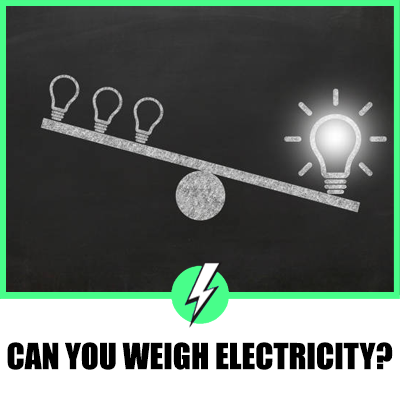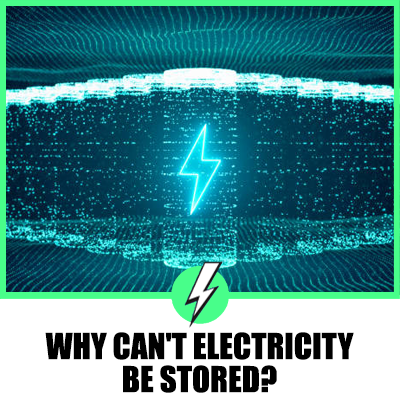Can You Weigh Electricity? A Deep Dive into the Physics of Energy
Electricity, a fundamental force of nature, powers our world.
From the smallest microprocessors to the largest power grids, electricity is the lifeblood of modern society.
But have you ever stopped to wonder, can you weigh electricity?
This question might seem odd at first, but it opens up a fascinating exploration into the nature of energy, mass, and the universe itself.
This article aims to shed light on this intriguing topic, suitable for both UK and US audiences.

Contents
Can Energy Be Weighed?
To answer this question, we need to delve into the realm of physics.
According to Einstein’s famous equation, E=mc^2, energy (E) is equal to mass (m) times the speed of light (c) squared.
This equation tells us that energy and mass are interchangeable. They are different forms of the same thing.
So, in a sense, energy does have a “weight” because it is equivalent to a certain amount of mass.
However, this doesn’t mean you can put a kilowatt-hour of electricity on a scale and weigh it.
The weight of energy is a concept that exists within the framework of physics and isn’t something we can directly measure with conventional scales.
The Nature of Electricity
Electricity is the flow of electrons, and electrons do have mass.
However, the weight of an electron is incredibly small, about 9.1 x 10^-31 kilograms.
This is so small that it’s essentially negligible in most practical applications.
Furthermore, when we use electricity, we’re not adding or removing electrons; we’re just moving them around.
So, while the electrons themselves have mass, the use of electricity doesn’t change the total mass of a system.
Does an Electric Charge Have Mass?
An electric charge doesn’t have mass in the way that matter does.
Charge is a fundamental property of particles like protons and electrons, but it’s not equivalent to mass.
A charged object doesn’t weigh more than the same object without a charge.
However, the energy associated with the electric field created by a charge does contribute to the total energy (and therefore mass) of a system, according to the principles of general relativity.
How Much is One Gram Power?
The concept of “one gram power” doesn’t exist in physics.
Power is a measure of energy transfer over time, and it’s typically measured in watts (one joule per second).
If we’re talking about energy rather than power, one gram of matter is equivalent to about 9 x 10^13 joules of energy, according to Einstein’s E=mc^2.
But again, this isn’t something you can directly measure on a scale.
Insights from Online Discussions
Online discussions on this topic reveal a range of perspectives.
Some people argue that electricity does have weight, but we currently lack the devices to measure it accurately.
Others point out that while the electrons that constitute electricity have mass, the use of electricity doesn’t change the total mass of a system.
There’s also a consensus that the energy associated with an electric field contributes to the total energy (and therefore mass) of a system.
The Interplay of Energy and Mass
The relationship between energy and mass is a cornerstone of modern physics.
It’s what allows us to understand phenomena ranging from nuclear reactions to the behavior of black holes.
And while we can’t weigh electricity in the conventional sense, we can understand how it fits into this broader framework.
The energy carried by an electric current is part of the total energy (and therefore mass) of a system.
The Practical Implications
In practical terms, the mass of electricity is negligible.
The electrons in an electric current do have mass, but the total mass of a system doesn’t change when we use electricity.
This is because we’re not creating or destroying electrons; we’re just moving them around.
So, while the physics tells us that energy and mass are related, this doesn’t mean that your electric bill is adding to your weight!
Conclusion
In conclusion, the question of whether you can weigh electricity leads us into some deep and fascinating areas of physics.
While we can’t put electricity on a scale and weigh it, the principles of physics tell us that energy and mass are deeply interconnected.
This understanding helps us to appreciate the remarkable universe we live in and the fundamental forces that shape it.





